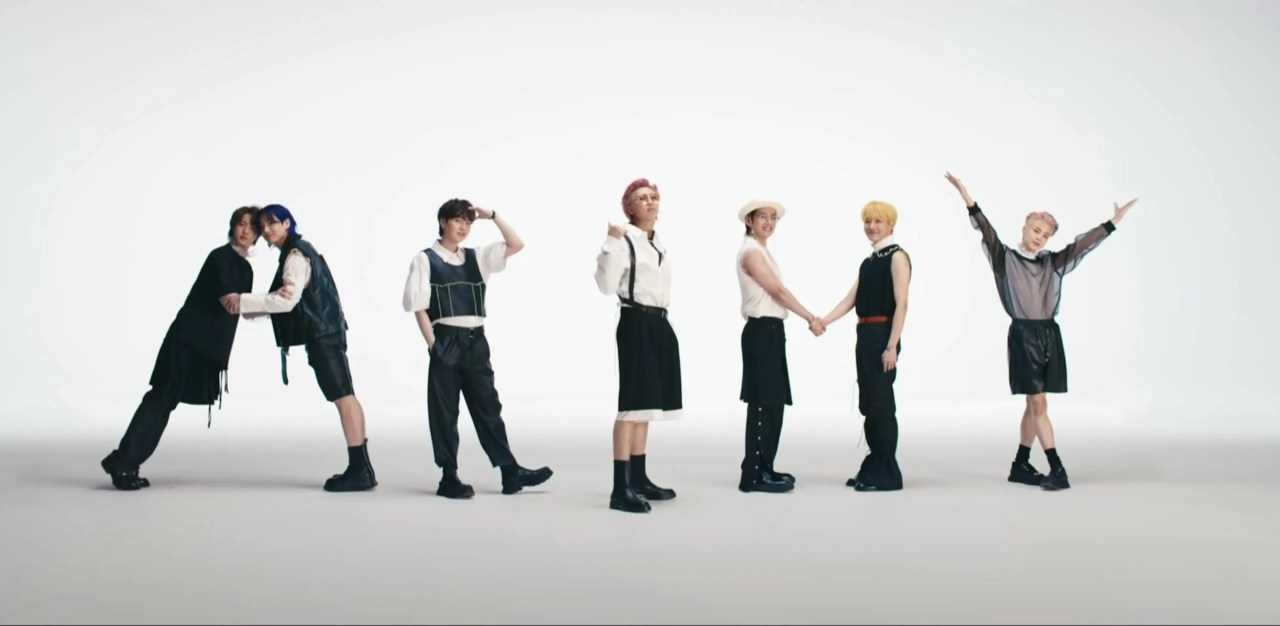
Here’s Why We Should All Be Concerned About The BTS Hate
“I don’t get BTS… How did this become a thing in Western culture, where all these grown men and little girls are jerking off to little K-pop boys. It’s like a little fetish. It’s like a little twink gay fetish…” – Ethan Klein from H3H3 Productions.
The othering of Asian cultures is an age-old tale. The West is fascinated with the palatable parts of our culture, indulging in sushi and Chinese takeout, ‘finding themselves’ on a trip through Vietnam, or wearing a cut-up Qi Pao at Halloween… but when it’s flipped and a foreign artist finds success on their turf, our cultures are suddenly too exotic, too strange, too other to fit in. Such xenophobic sentiments like Klein’s regarding BTS and the growing popularity of K-pop in America exhibit just that…reducing our non-mainstream cultures to a deviant fetish or sexual fantasy. (Not to mention his raging homophobia and misogyny.)
In this issue the discussion is often misled and centered around the narrative that K-pop stans cannot stand people disliking K-pop or their favs, when in reality, the problem is much deeper. The issue is not about disliking K-pop or BTS but the prejudiced language used by Western media to describe BTS and other non-English speaking artists. Aamina Khan describes the “tendency of English-speakers to celebrate and acknowledge success only when it comes from other English-speakers.” She highlights how many English-speaking artists, such as Canadians Shawn Mendes and Justin Bieber, are never questioned regarding their international popularity and are embraced widely by the public. Their success around the world, including in countries like South Korea, is expected and deserved.
But for BTS, the overwhelming sentiment is that their success is “shocking” and is explained away as an exotic or strange trend in Western society. Because how could music from South Korea EVER be popular here other than to fulfill some sort of sick fetish? How can non-English music be taken seriously?
This archaic view in the West of the West as the dominant culture pervades society, not just the entertainment industry, where this sense of cultural superiority dismisses the success of those from countries viewed as lesser than. Chinese artist Kris Wu experienced a similar ordeal in 2018 when he was accused of using bots to manipulate the iTunes charts after he beat Ariana Grande and Lady Gaga for the #1 spot. It seemed completely unbelievable that a foreign Chinese artist could appeal to a Western audience and be competitive with popular Western artists.
The same issue persisted back in July this year for the Video Music Award (VMA) nominations. At the time of release, BTS’ song with Halsey, ‘Boy With Luv’, set the record for the most views in the first 24 hours in YouTube history, as well as outselling every single artist nominated in the Artist of the Year category, but still received no nomination. The VMAs coincidentally created an entirely new and separate category for K-pop this year, in my opinion to avoid nominating any competitive Korean acts in the main categories. The same mistreatment has been seen for Latin artists in the Western music industry for years. All in an attempt to separate them from us.
Regardless of what you think of BTS’ music, the same respect given to Western artists should be afforded to them as human beings. These seven men have been active artists since 2013. They are not new to the game (despite what many Western media outlets would have you think). Not only does BTS perform, they also write and produce all of their own music and have always created meaningful songs that cover topical issues, including mental health, self-love, and the pressures placed on youth in today’s society.
To sum it up, it is completely okay to dislike K-pop as a music genre. Despising BTS’ music does not automatically make you a racist. Not every genre is everyone’s taste, and that’s the beauty of having such diverse musical artists. However, what is not okay is speaking about a group of artists as if they are a fetish and shaming them because of your own toxic masculinity, speaking as if they are not to be taken seriously because they are from South Korea and do not sing in English. It is not okay to conflate an ENTIRE COUNTRY’S music as one genre when you have not taken the time to educate yourself on it.
So, where do we go from here? As someone who has been a fan of K-pop for years, I truly believe the tides are slowly starting to change. BTS opened up a world of new possibilities for artists from all around the world, and despite the hate that is constantly thrown their way, they continue to create inspiring music and break records both within South Korea and internationally.
Whether you are a K-pop fan or not, I urge you to think about the ramifications of these issues in real life. Because at the end of the day, this is not just about BTS. This is not just about K-pop. This is about changing the perspective that being a certain race or speaking a certain language makes you better than anyone else. It is about understanding that just because something is unfamiliar does not make it wrong. It is about fostering diversity and inclusivity in all walks of life.
“… Music truly has the power to overcome various kinds of barriers, including languages, nationalities, and many boundaries.” – Kim Namjoon, 2019.
